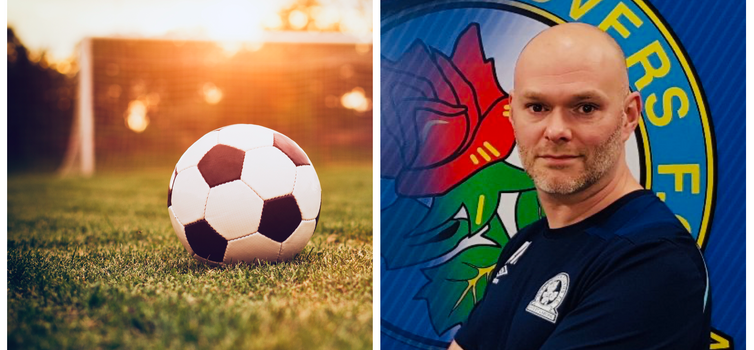Andy Hill: What does good sports psychology look like?

Written by Dr Andy Hill — April 30, 2020
A level of mystery surrounds sports psychology in football.
Coaches and managers know it’s important. They know a player’s attitude makes the difference. They read the books about leadership that talk about it. And it forms part of their coaching badges.
But if you ask a coach to explain what good sports psychology looks like, you’ll often get a blank expression. Or worse.
We’re not like the other sports sciences, because we don’t tend to put numbers on things and, with the odd notable exception, we’re not ‘football people’.
When we receive any attention in the press, it tends to be because it has been “revealed” that a player has been “seeing” us. When was the last time you read about a player “seeing” a strength and conditioning coach?
And this is a problem - a big problem - because it prevents us from helping players, coaches, teams and clubs to be the best they can be.
Contrast with Olympic sports
I’m fortunate to spend roughly half my time working in football - either with my club, Blackburn Rovers, or through my private practice - and the other half working in Paralympic sport.
In Olympic and Paralympic disciplines, sports psychology is a well-established practice, with buy-in and impact across the system. Athletes regularly and pro-actively seek support and know that without it their quest for medals will become much harder.
Coaches regularly look to psychologists to help them get the most out of their athletes and their teams, while Performance Directors use them to help set and drive the organisational culture.
In senior football, this hasn’t traditionally been the case. Often - if they were involved at all - psychologists have been marginalised, working with the odd fringe player, or players going through rehab, or to support the sports science team.
Perhaps this isn’t that surprising. Managers and backroom staff are usually only ever a few games away from the sack, while sports scientists are constantly under pressure to make sure players are fit for the next game. When such anxiety exists, people can start to self-protect, trust erodes, and blame gets shifted.
Unless the right people in the club have a solid understanding of the benefits of applied psychology, then nobody will listen.
This is why you need to know what good sport psychology looks like.
Good sports psychology
First of all, what constitutes a psychologist? Football is awash with mental performance coaches, life coaches, mindset experts and so on. As a coach, what should you look out for?
In short, psychologists are regulated by a combination of the British Psychological Society (BPS), the British Association for Sport and Exercise Scientists (BASES) and the Health and Care Professionals Council (HCPC).
Anyone in football who isn’t regulated by these bodies shouldn’t really be calling themselves a psychologist.
And what does good sports psychology look like? It isn’t getting a player to lie on a couch and tell me about their problems, while I tell them it’s their parents’ fault; and it isn’t a coach knocking on my door telling me to have a word with a player because his “head fell off” in training (I’ve lost count of how many times this has happened to me).
Another common misunderstanding concerns mental health issues. Although we’re often the best-placed people in the system to help, treating clinical issues such as depression or addiction falls beyond our scope of practice. However, we can often help facilitate referrals to the appropriate specialists.
So on to the good. Effective sport psychology happens on many levels. To start with, there’s the obvious one-on-one work with players, coaches and staff, which should be proactive rather than reacting to a problem (although reactive work is often a good entry point).
By building robust performance methods with players and improving a coach’s ability to shape a player’s behaviours, players become more consistent performers and have better relationships with their coaches.
There’s work around team dynamics, which mean helping teams and staff to better understand themselves and each other and create space for the necessary friction required within high-performing teams. As a result, staff teams and playing squads communicate more effectively and align better with common values and objectives, coming together to create a team that is greater than the sum of its parts.
Then there’s the work on the training ground itself, helping coaches to deliver more impactful sessions; not by being technical experts or because we’re ‘football people’, but because we’re experts on behavioural change.
Enhancing existing coaching methods with psychological insight means players can improve faster, and coaches can gain a wider range of tools for their toolbox.
Finally, there’s the work around culture, helping shape the environment to deliver the desired behaviours; and work at an organisational level, guiding the whole system towards improved performance. This can also help to reduce the constant undercurrent of anxiety across the system.
Lessons learned
I’ve spent many years trying to work at each of these levels within football, with varying degrees of success, but the one key thing I've learned is that you have to be invited to work in that space, by the people responsible for it.
If a player or coach doesn’t want the support, it won’t work. You can’t smash the doors down. I’ve seen people try to do that and I’ve seen people lose their jobs because of it.
As a practitioner, you have to spend time building trust, building relationships, and establishing your credibility in the ‘real world’. Because, to be frank, no number of certificates will ever be enough to convince someone to let you ‘mess about with the mind’ of a £20m asset.
Ironically, it’s on this point that we psychologists often struggle.
We’re generally quite an anxious bunch, plagued with self-doubt as a result of knowing our own limitations, but this doesn’t make for a good sales pitch. Conversely, when we do talk ourselves up, we run the danger of coming across as too arrogant.
This is often where the ‘life coach’ excels with a well-crafted pitch that exploits the lack of knowledge around applied performance psychology. It’s not a popular viewpoint amongst some psychologists, but we could probably learn a lot from life coaches when it comes to branding, self-promotion, and getting a foot in the door.
Looking forward
My personal experience of working with coaches and players gives me hope about the future of sports psychology in football. Over the years, I’ve been fortunate to work with some very open-minded and forward-thinking players, coaches and organisations. Between us, we’ve done some good work with tangible results.
This hasn’t happened by accident though. Collaborative partnerships take small leaps of faith from both parties. It takes openness and trust from coaches and players, it takes transparency and humility from the psychologist, and it takes acceptance - and sometimes a bit of patience - from the system as a whole. Good psychology requires a good understanding of the context, and this can take time
Well-publicised positive impact at the highest levels (the work of Dr Pippa Grange with England, and Dr Ian Mitchell, first with Wales and now with England, comes to mind immediately) illustrate that it can work.
Academies are required as part of the Elite Player Performance Plan to provide psychological support for players and coaches coming through the system, and these players, who are generally far more comfortable proactively seeking psychology support than previous generations, are now starting to have an impact at first-team level, while Academy coaches are used to having a psychologist around full time.
The future is definitely looking brighter for psychology in football.
- Dr Andy Hill has worked as a performance psychologist with Blackburn Rovers since July 2015 and with GB Paralympic table tennis since March 2019.













